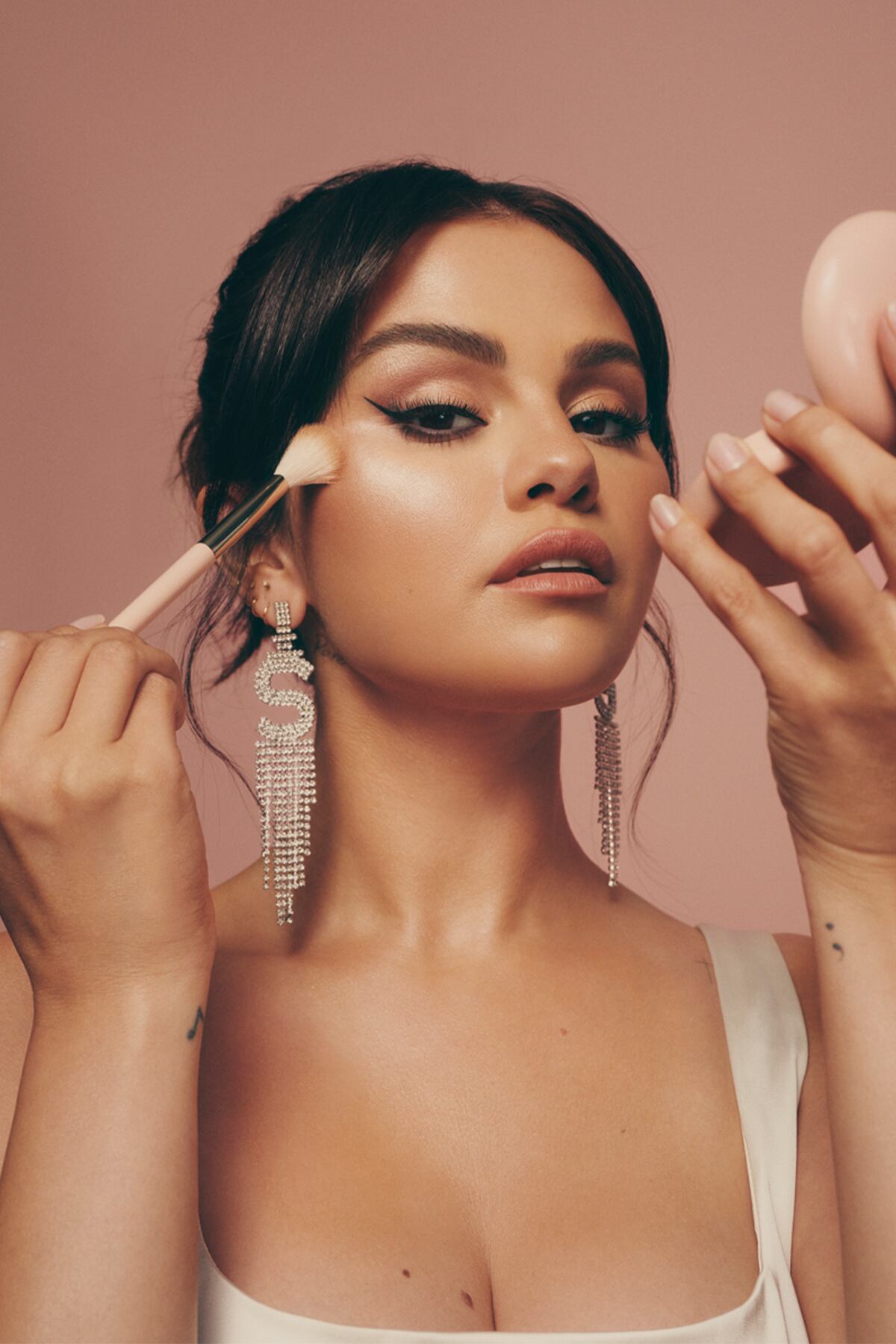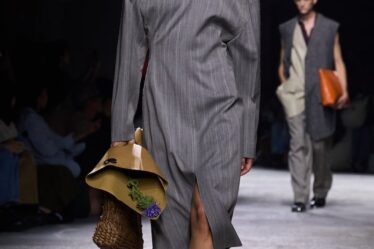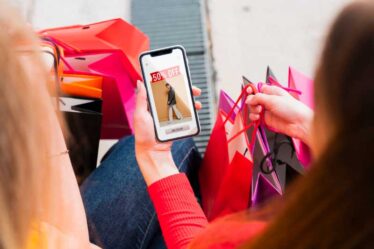
In the new season of “Only Murders in the Building,” the main characters’ hit podcast is being turned into a movie. In real life, lead actress Selena Gomez is building her own, much bigger, empire.
The 32-year-old rose to fame as a kid on the Disney Channel, started a music career, created her own beauty brand and is now starring on the Emmy-nominated Hulu show. In the process, she’s built a fortune that’s made her one of the country’s youngest female self-made billionaires.
Gomez is worth $1.3 billion, according to the Bloomberg Billionaires Index, which is ranking her for the first time. Unlike her close friend Taylor Swift — who has reached billionaire status largely from her music and touring — the actress, singer and entrepreneur has become wealthy from a mix of businesses that leverage her talent and hundreds of millions of social media followers.
“Selena is not just a pop star,” said Stacy Jones, founder and chief executive officer of Hollywood Branded, a Los Angeles-based branding agency. “She’s a multifaceted businesswoman with diverse income streams contributing to her impressive net worth.”
The vast bulk of Gomez’s wealth is tied to Rare Beauty Brands Inc., the makeup line that she started five years ago and has become a hit with influencers and cosmetics-obsessed teens. But she also has brand partnerships, acting deals and a mental-health startup, an array that should help ensure wealth longevity should she ever decide to stay away from the public eye.
Brent Saunders, CEO of eye-health company Bausch + Lomb Corp. and an investor in Gomez’s Wondermind startup, said there’s a key factor for her success: authenticity.
“You’ve got a real role model of how a celebrity can use their influence and expertise to both do good and create good business,” Saunders said. “Selena epitomises that.”
Representatives for Gomez didn’t respond to requests for comment. Bloomberg’s wealth analysis took into account the estimated value of her stake in Rare Beauty, her interest in Wondermind, the estimated value of her music album sales and properties, and earnings from streaming deals, brand partnerships, concert tickets and acting. It assumes the lowest estimated value of her stakes in businesses and is based only on assets that could be confirmed or traced from publicly disclosed figures.
Child Star
As a child, Gomez got her start in the spotlight as part of the cast of “Barney & Friends.” She moved on to star as Alex Russo in the Disney Channel’s “Wizards of Waverly Place” from 2007 to 2012. It turned into a hit that earned the then-teenaged Gomez around $3 million in total.
But she really blew up into the public eye after starting a music career, first with the pop-rock band Selena Gomez & the Scene and then as a solo artist. With three studio albums and 44 singles, she won the American Music Award for favourite pop/rock female artist in 2016, and was nominated for two Grammy awards. Her acting career continued to grow as well, with roles in movies such as “A Rainy Day in New York” and “Spring Breakers.”
In the process, Gomez generated huge success on social media: With 424 million followers, she’s behind only soccer legends Cristiano Ronaldo and Lionel Messi as the most popular person on Instagram. That made her powerful enough not just to promote her own brand, but those of big names such as Puma SE, which signed her to a two year-deal worth a reported $30 million in 2017. Gomez also earned $10 million when she was tapped as Coach’s face in 2016, and had a $10 million agreement with Louis Vuitton.
While music has made her particularly popular, it’s a relatively small source of her wealth. Unlike Swift, Gomez isn’t known as a songwriter and is paid mostly for performance royalties. She would potentially double her music earnings if she wrote her own songs, said Jones.
Music tours only accounted for less than 5 percent of Gomez’s wealth, with album and record sales less than 2 percent. She hasn’t toured since 2016, when she abruptly canceled her Revival tour after 55 shows, citing mental health struggles. Still, the tour had more than $30 million in ticket sales.
“It’s smart that she’s kind of created a career that’s not so dependent on music being a big part of the financial piece,” said Carolyn Sloane, a professor at University of Chicago’s Harris School of Public Policy.
Rare Success
Most of Gomez’s fortune — roughly $1.1 billion — comes from her stake in Rare Beauty, which she has kept largely independent. The only known investors are Nikki Eslami’s New Theory Ventures and CEO Scott Friedman, who previously led Nyx Cosmetics and sold it to L’Oréal for $500 million in 2014. The Bloomberg analysis assumes Gomez holds a 51 percent majority interest based on her founding role in the company.
In March, Bloomberg reported that Gomez hired advisers to weigh selling Rare Beauty at a $2 billion valuation, though she later told Time magazine that she has no plans to sell.
Gomez and her team launched the brand in 2020, marketing it as simple, moderately priced makeup.
“I really tried my hardest to create a product that were beyond just me putting my name on something,” she said in a 2023 radio interview. “I wanted the products to be great, and I also wanted the message to be that makeup is meant to be fun.”
Gomez used her own influence to create social media buzz for the products. In the early months following Rare’s launch, she recorded hours of herself doing her makeup for one of her TV shows, the Max cooking series “Selena + Chef.” Her team then cut those sessions down to clips that often last no longer than a minute. Other snippets feature Gomez on TikTok with commentary about Rare’s products.
Rare’s annual revenue reached $350 million last year, according to Pitchbook, topping other celebrity-founded brands such as Jessica Alba’s Honest Co. and Haus Labs by Lady Gaga.
Gomez, who has been open about her struggles with bipolar disorder, pledges to donate 1 percent of all Rare Beauty sales to the Rare Impact Fund for mental health service and education. That type of “worthy cause” makes it even more appealing for fans to support the business, Jones said.
“I have a lot of respect for what Selena and her team built with Rare Beauty Group over a short time,” said Saunders, the Wondermind investor. The combination of celebrity backing, a cause-based mission and quality products is “a really good mix for success,” he said.
When Saunders met Gomez for the first time to talk about investing in Wondermind at private club Zero Bond in New York, he said it didn’t feel like a business pitch. “I wasn’t asking for projections or return on investment. We really talked about bringing more awareness and make people feel they are not alone.”
Gomez co-founded Wondermind with her mother, Hollywood producer Mandy Teefey, and Daniella Pierson, the founder of pop culture newsletter The Newsette. The platform — which includes mental-health tools, interviews and a newsletter — was valued at $100 million in 2022. It attracted investments from Lightspeed Venture Partners, Sequoia Capital and tennis icon Serena Williams’s venture fund, Serena Ventures.
Gomez is now in focus for her turn as Mabel Mora on “Only Murders in the Building,” which co-stars Steve Martin and Martin Short and started its fourth season on Aug. 27. She takes home at least $6 million per season from the show and is up for an Emmy award for lead actress in a comedy series later this month.
The star hasn’t disclosed specific plans on her music and new shows but she expressed her inclination toward acting on a January episode of the SmartLess podcast: “I do feel like I have one more album in me,” she said. “But I would probably choose acting.”
As for Rare Beauty, high valuations might be transitory and celebrity attachment is no guarantee of a forever hit. Consumers can be fickle, and lots of brands tied to famous people have fizzled after a strong start. Last year, Kristen Bell shut down her skincare line. Sephora stopped selling the brands of TikTok celebrities Addison Rae and Hyram Yarbro. Ariana Grande paid $15 million to buy the physical assets of her company, r.e.m. beauty, from Forma Brands, whose big bet on celebrity influencers soured and pushed it into bankruptcy.
For Gomez, diversifying her business into multiple avenues might prepare her better for later years, said Sloane.
“What she’s doing is pretty smart,” she said. “There has been this big shift throughout her career towards what fits her more authentically, which turns out to be better investment decisions.”
By Diana Li



